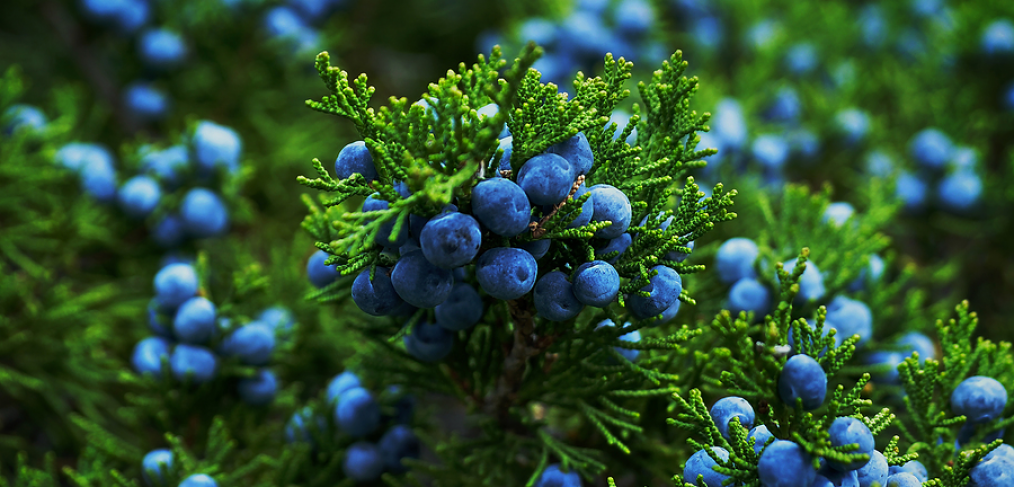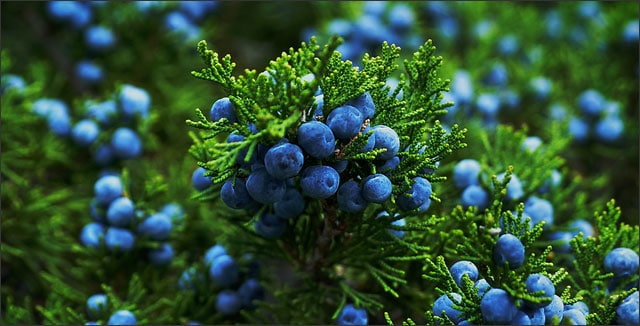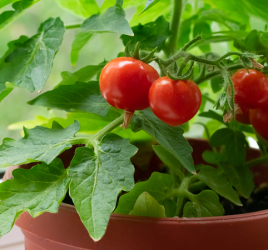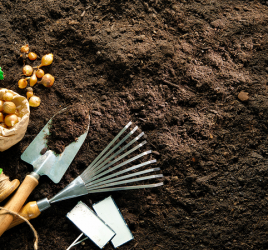
The Amazing Juniper Bush – What You’ll Want to Know

A friend of mine discovered she had juniper bushes on her property the first year she lived in her house this way: Every year she uses fresh evergreen branches as decoration around her house to make wreaths and garlands.
If she gets the chance, she uses fresh branches she cuts from a live tree. The first year she lived in her house, she decided to check out all the evergreen branches her property had to offer.
She quickly discovered that, in addition, to several types of pine trees, there was a wide blue-green shrub whose branches bore blue berries. She collected a wagon-full and hauled them inside to decorate tables and tops of bookshelves. It wasn’t until the next day that she began smelling something delicious coming from everywhere in her house.
Without knowing they were juniper branches, my friend had discovered just one of the amazing properties of the juniper tree: it’s delicious, sweet, and woody aroma.
If you cut or buy a few branches of juniper for the holiday season, your house will smell amazing for weeks.
About Juniper Bush or Trees
Junipers are indeed small evergreen trees or bushes. They are actually members of the cypress family but some of the species are also called red cedars. There are about 30 species of juniper and they are all native to the Northern Hemisphere, where they are widespread all over Europe, Asia, Japan, Alaska, Canada, Greenland, and the United States. You can find them in the Appalachians, Utah, California, Arizona, and New Mexico.
Unlike their larger evergreen cousins, most junipers don’t get taller than 30 feet. However, some of them can grow up to 90 feet.
You will recognize a juniper by its short trunk with reddish-brown bark that looks very crackly. The leaves are like short and tough like needles but with a more forked shape and can be grayish green or bluish green.
The leaves smell like cedar, lemons, apples, or incense when crushed. Junipers are unique in that they are dioecious. This means they are individual plants are either male or female but not both and flower differently.
The fruit they produce are small green berries. They are technically cones whose lobes are too smooth and tight to be seen. These turn dark blue when ripe and give 3-6 seeds.
Junipers can be found almost anywhere. They have the largest range of any woody plant in the whole world. This is because they can tolerate acid and alkaline soils, sandy or clay soils, rocky hillsides, prairies and abandoned farmland.
Juniper Incense
Here is where it gets interesting. My friend noticed the smell but didn’t immediately connect it with her plant. This was because it smelled so much like the incense she was used to smelling at church.
She assumed it was left on her clothing. Then she was prompted to do some digging when she realized the juniper branches smelled so good.
What she found out was that incense – at least the incense traditionally used for spiritual ceremonies – is just burning evergreen resin. The sap collected from various types of pine trees can be burned. It gives off a very fragrant smoke that native peoples used for probably hundreds of years in North America.
The knowledge of incense burning was lost with them, in large part. However, the trees traditionally used for collecting resin to burn for incense are White Pine, Jack Pine, Red Pine, Blue Spruce and Norway Spruce. Juniper – or Red Cedar – is one of the trees that produce very little resin, making it more difficult to harvest. However, the berries can be burned and produce a lovely, cedar smell.
Juniper’s Healing Properties
There is quite a bit known still about juniper’s uses as food and as medicine. Juniper berries are most famous for flavoring gin. In fact, they have been used this way for 300 years. The word gin is from the Dutch word for Juniper “geniver.” They can be used to flavor other food – either fresh or in dried form, from game to soups. Juniper berries impart and spicy and earthy flavor.
American Indian tribes used juniper in tinctures for vomiting, arthritis, and coughing by steeping the leaves in boiling water. Women in labor drank juniper tea to speed delivery, as it can cause muscle contractions.
It has also been used as a general tonic to cure colds, fevers, tonsillitis, pneumonia, constipation, infections, arthritis, wounds, congestive heart failure, gonorrhea, urinary tract infections, gas, indigestion, warts, bronchitis, tuberculosis, gallstones, colic, heart failure, intestinal disease, gout, and back pain.
This is all because Juniper has diuretic, antiseptic, stomachic, antimicrobial, anti-inflammatory and anti-rheumatic properties because of a volatile oil found in the berries. It contains terpenes, flavonoid glycosides, tannins, sugar, tar, and resin.
The diuretic compound in the oil can stimulate the kidneys and increase their effectiveness. The flavonoid and amentoflavone have antiviral properties. The resins and tars have been shown to be an effective treatment for skin conditions like psoriasis. It has anti-inflammatory properties. This makes it effective in treating arthritis and other inflammatory diseases, as well as settling the stomach and relieving gas.
Consult a Modern Herbalist
Before trying to use juniper on yourself, you want to consult with a modern herbalist first. Because of its diuretic properties, and the possibility of it interacting with any drug, this isn’t an herb you should use without direction. It’s possible to take too much of it. However, it has been used to treat a wide variety of health problems, as you can see. Juniper should not be used by pregnant or lactating women.
Takeaway
If you are lucky enough to have a juniper bush on your property, you may benefit from its leaves and fruit – and its smell! Make sure you consult with a professional herbalist and a doctor if you are on any medication before using juniper for health reasons.
If you are looking for greenery to add a heavenly smell to your home for the holiday season, try to get hold of some juniper branches. You won’t be disappointed.
If you are interested in planting juniper bushes in your yard, consider installing Root Starter Sticks. These are a direct to root system that allows air and water to go deep into the root zone. They will give your new bushes the best chance of survival.



